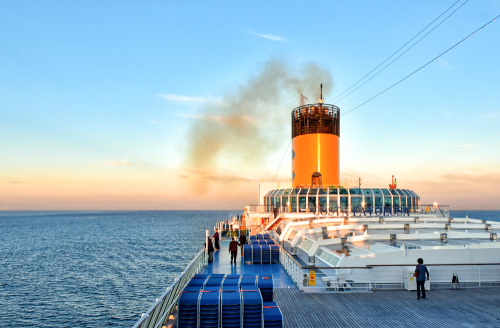Not for profit coalition SEA LNG opposed to a recent report by the World Bank which found that LNG cannot form a large proportion of the bunker fuel mix in 2050 due to its carbon intensity, in line with Paris Agreement and Initial IMO GHG Strategy.
The World Bank report, ‘The Role of LNG in the Transition Toward Low- and Zero-Carbon Shipping’ issued last week, revealed that LNG is likely to play a rather limited role as bunker fuel, with its share of the fuel market likely to grow during the 2020s. By 2030, it may account for up to 10% of the bunker fuel market in energy terms, or up to a maximum of 40% if every newbuild was to become LNG fueled during this decade.
Beyond 2030, the demand for LNG as a bunker fuel is expected to decline, the report found, with the speed of decline being uncertain and highly dependent on future climate policy and zero-carbon fuel market developments. Demand for LNG as a bunker fuel may end by the early 2040s, or potentially as late as the early 2050s and a portion of the LNG-fueled fleet by 2031 may subsequently move to using LBM or LSM.
Alternatively, it may be more competitive for these vessels to be retrofitted to the fuel type that becomes the dominant zero-carbon bunker fuel, which is currently most likely to be ammonia or hydrogen.
While air quality benefits from the use of LNG are instant, tangible, and valuable, its use should be limited to those circumstances where no preferable alternatives are available, and the GHG and financial risks are acknowledged and mitigated. These restrictions are likely to prevent LNG from becoming a large-scale bunker fuel in line with IMO’s climate target for 2050,
…the report reads.
Responding to these findings, SEA LNG said that shipping cannot afford to keep waiting for unproven alternatives to reduce GHG emissions, over LNG, which is safe, proven, competitive and available today, with a confirmed reduction in GHG of up to 23%.
SEA-LNG believes strongly that the transition to future fuels must not follow this (the report’s) prescriptive approach. It is far too early to decide what the real potential of various alternatives fuels will be for such a highly complex, hard-to-abate, global industry,
…the group said, noting that the 50 plus years of proven operational experience that the industry has with LNG speaks for itself.
Meanwhile, a new SEA-LNG study, published last week, unveils the essential role that LNG has to play in shipping’s pathway to decarbonization, the group added. Sphera’s 2nd Lifecycle GHG Emission study shows that LNG as a marine fuel provides GHG benefits of up to 23% on a Well-to-Wake (WtW) basis and up to 30% on a Tank-to-Wake (TtW) basis compared with current oil-based marine fuels.
The findings are based on the latest primary data, assessing all major types of marine engines and global sources of supply, follows ISO standards and is peer reviewed by neutral academics, “in contrast to some of the studies that the World Bank cites which are based on out-of-date technologies used in niche maritime operations,” SEA LNG continued.
Touching upon the issue of methane, the same study shows that methane slip does not impact LNG’s GHG reduction potential to the extent that the World Bank report claims, according to SEA LNG, as LNG-fueled vessels being built today have much lower levels of methane slip than what is often cited in academic studies, including the IMO 4th GHG study.
Finally, SEA LNG stressed that the World Bank report also fails to acknowledge the very rapid acceleration in the availability of Bio-LNG. The European Biogas Association expects a ten-fold increase in Europe by 2030 and according to a study by IEA, every part of the world has significant scope to produce biogas and/or biomethane, the gaseous form of bio-LNG. The 2020 Bio and synthetic fuels study by CE Delft highlights that large-scale bio-LNG supplies produced from sustainable biomass resources could be available in the 2030s, presenting the maritime sector with a safe and scalable alternative fuel.
While highlighting green ammonia and hydrogen as the only viable future fuels, the World Bank report fails to mention the major challenges associated with these fuels…The World Bank’s untested theoretical approach risks delaying the shipping industry’s decarbonisation and at worst it can lead the industry down a technology cul-de-sac,
…SEA LNG noted.
SEA-LNG encourages informed debate of future fuels. It is important however, to base this debate on objective, up-to-date Lifecycle Analysis and recognise that we need to start with proven technologies not future concepts that are currently no more than wishful thinking,
…it concluded.






























































